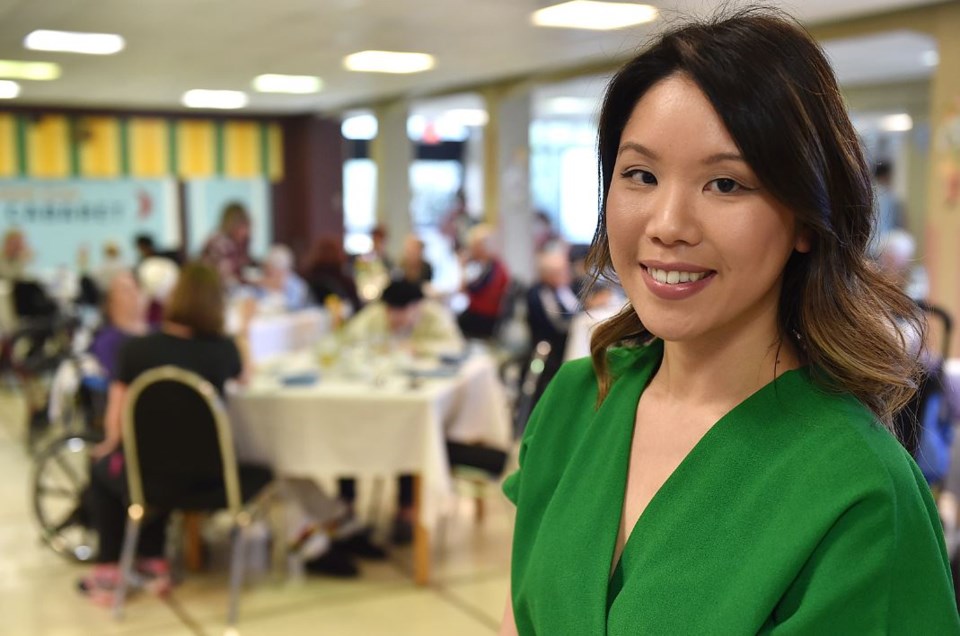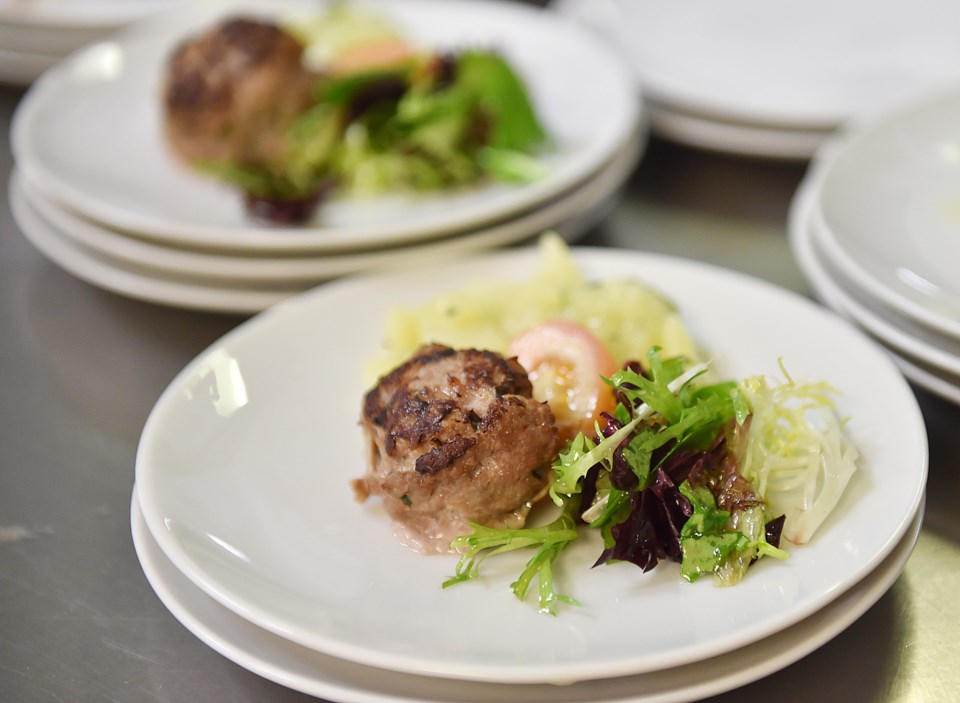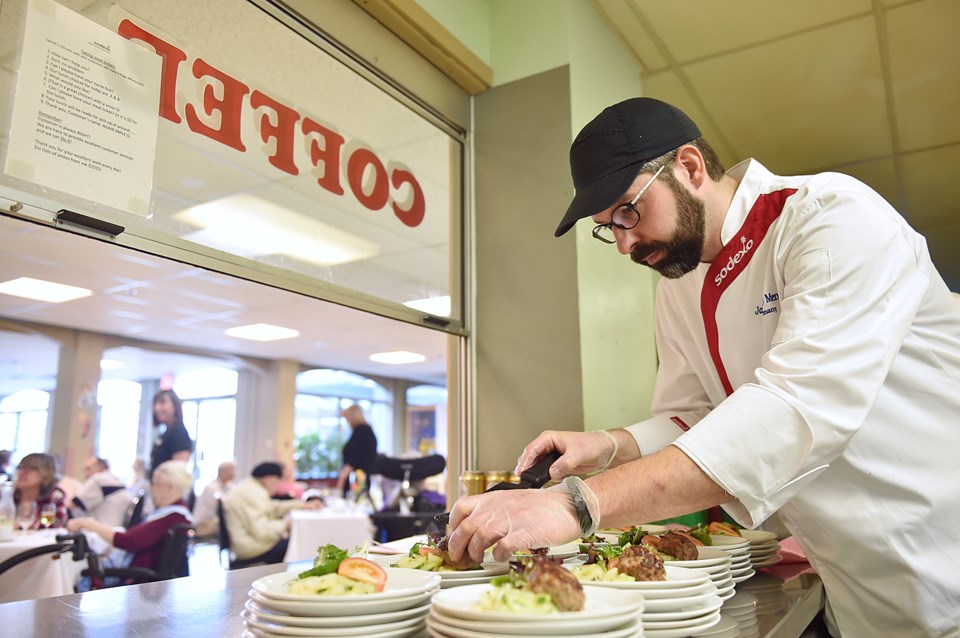“Roll out the barrel, we’ll have a barrel of fun…”
As a lederhosen-clad, Bavarian oompah band plays the popular German ditty “Beer Barrel Polka,” residents of Youville Residence in Vancouver nod their heads and tap their hands and feet in time to the music.

While the music plays, residents are served a four-course, German-inspired meal, including veal rissole, beef broth, Hamburg-style pan-seared salmon and Bavarian cream topped with fresh berries.
Tiffany Chiang, district manager for Sodexo, the company contracted to prepare food for Vancouver Coastal Health and Providence Health Care hospitals, says themed meals are just one way to encourage care home residents to get enthusiastic about eating.

“We really focus on seasonal, local produce and have partnered with Ocean Wise (a sustainable seafood program) to serve locally caught fish such as salmon and haddock,” says Chiang.
But the program isn’t just about care homes serving up more delicious food. Vancouver Coastal Health and Providence are transforming the way food for patients in hospitals is sourced, prepared and served. To that end, they’ve created a new bedside service in partnership with Sodexo, which means patients have dedicated service attendants who help them review menu items, answer questions, take orders and hand-deliver each of the day’s meals. Patients can choose their diet-appropriate meals from four core menus — Asian, western, summer and winter — incorporating culturally diverse, contemporary and healthy comfort menu items developed by Sodexo’s culinary team.

A typical menu could include dishes such as tandoori chicken drumsticks, sesame ginger cod, jambalaya, sweet and sour pork and chicken tortilla soup, as well as traditional offerings such as beef pot roast and pulled pork. Meals are also cooked as close to serving time as possible
Chiang says the thought behind the improvements was to not only make hospital food more tempting, but also to lessen food waste, a huge cost to health authorities. In 2012, Vancouver Coastal Health and Providence Health created a goal to reduce food waste from 35 to 10 per cent. The national average for food waste in hospitals is 40 per cent.
“Here it’s down to 14 per cent,” says Chiang. “It’s been a slow transformation for long term care homes.”
Another bonus is a recent survey that showed 95 per cent in patient satisfaction.
“We are still able to accommodate 1,000 different diets,” says Chiang, “everything from Healthy Heart to gluten free.”
@sthomas10



